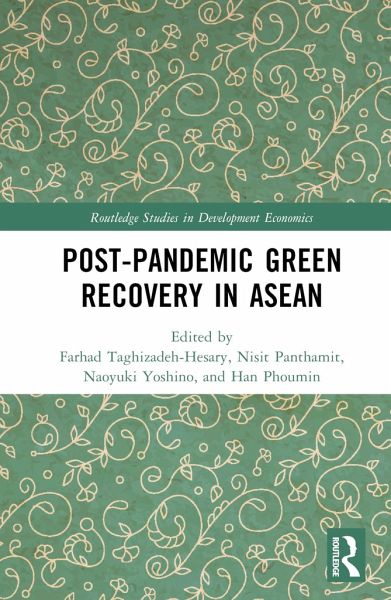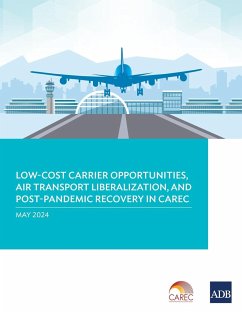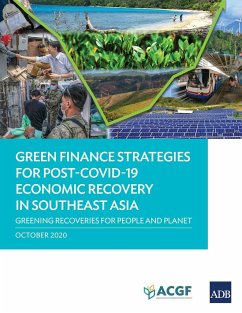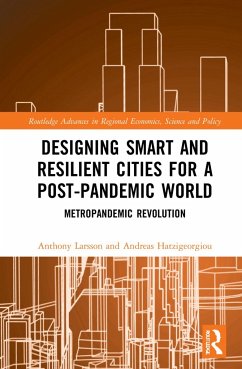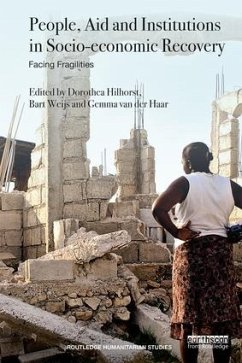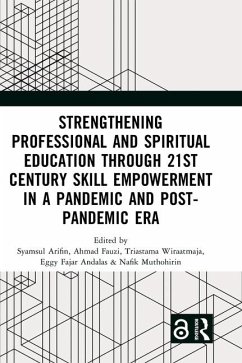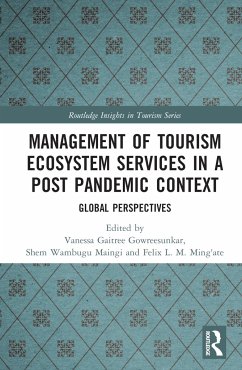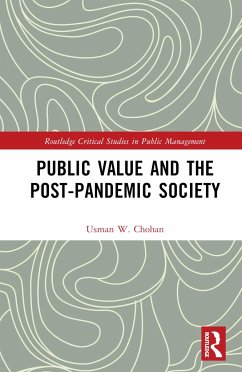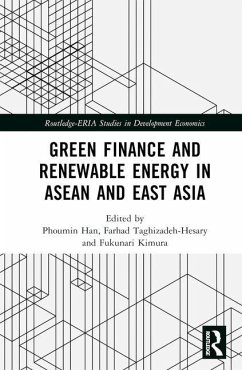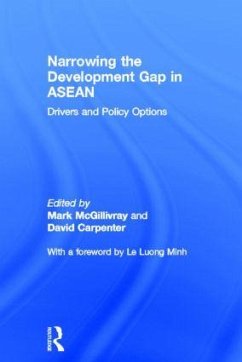Gebundenes Buch
Post-Pandemic Green Recovery in ASEAN
Versandkostenfrei!
Versandfertig in 1-2 Wochen
Weitere Ausgaben:

PAYBACK Punkte
75 °P sammeln!




ASEAN's real gross domestic product (GDP) had declined sharply during the COVID-19 pandemic. This book offers insights into regional and country-level perspectives and ways to keep the greenness of the economic recovery plans.
Farhad Taghizadeh-Hesary is associate professor of economics at Tokai University in Japan. In addition, he is vice-president and co-founder of the International Society for Energy Transition Studies (ISETS). He is a recipient of the Excellent Young Researcher status from the Ministry of Education of Japan (MEXT). He is also a visiting professor at Keio University (Japan), the Technology Studies Institute (Iran), Chiang Mai University (Thailand), and a distinguished research fellow at the University of Economics Ho Chi Minh City (Vietnam). In 2022 he was listed on Clarivate's list of Highly Cited Researchers(TM) (World Top 0.1% of scientists). Currently, he serves as the editor-in-chief of the Journal of Environmental Assessment Policy and Management and as an associate editor/ board member of several scholarly journals. His research credits include authoring more than 250 academic journal papers and book chapters and editing 18 books published by Springer Nature, Routledge, World Scientific, and Asian Development Bank Institute. Dr Taghizadeh-Hesary holds a PhD in economics from Keio University with a scholarship from the government of Japan (MEXT). Nisit Panthamit is director of the Center of ASEAN Studies and associate professor of economics at the Faculty of Economics, Chiang Mai University in Thailand. He is also an academic advisory board member of the National Economic and Social Development Board for the National Strategy Plan 20-Years of Thailand. He has published on a wide range of topics, including international economics, ASEAN studies, and regional integration, in prestigious journals, including Finance Research Letters, Sustainability, Journal of Economic Integration, and Emerging Markets Finance and Trade. He earned a PhD in economics from the University of Wisconsin-Milwaukee, USA, in 2002 and an MA from Chiang Mai University, in 1994. He is coeditor of the book titled Poverty Reduction for Inclusive Sustainable Growth in Developing Asia (Springer, 2021). Naoyuki Yoshino is professor emeritus of Keio University in Tokyo, Japan, and director of the Financial Research Center (FSA Institute, Government of Japan). He obtained a PhD from Johns Hopkins University in 1979, where his thesis supervisor was Sir Alan Walters (the United Kingdom's former Prime Minister Margaret Thatcher's economic adviser). He worked as an assistant professor at the State University of New York at Buffalo, visiting scholar at the Massachusetts Institute of Technology (United States), visiting scholar at the Central Bank of Japan, and visiting professor at the University of New South Wales ( Australia), and Fondation Nationale des Sciences Politiques (France). He was the dean and CEO of the Asian Development Bank Institute in Tokyo (2014-2020). Dr Yoshino received honorary doctorates from the University of Gothenburg (Sweden) and Martin Luther University of Halle-Wittenberg (Germany). He was also conferred the Fukuzawa award from Keio University for his contribution to research. Han Phoumin is senior energy economist with the Economic Research Institute for ASEAN and East Asia. He has more than 20 years of experience working at various international and intergovernmental organizations and multidisciplinary research consortia related to the energy market and technologies, environment, integrated water resource management, governance, and economic development in the region of the Association of Southeast Asian Nations and East Asia. He specializes in economic development and policy and applied econometrics. Over the past ten years, much of his career has involved the power sector, incredibly sustainable hydropower development, renewable energy research, energy efficiency, clean coal technology, energy security, and energy demand and supply forecasting.
Produktdetails
- Verlag: Routledge
- Seitenzahl: 288
- Erscheinungstermin: 21. April 2023
- Englisch
- Abmessung: 240mm x 161mm x 20mm
- Gewicht: 599g
- ISBN-13: 9781032349060
- ISBN-10: 1032349069
- Artikelnr.: 67399943
Herstellerkennzeichnung
Libri GmbH
Europaallee 1
36244 Bad Hersfeld
gpsr@libri.de
Für dieses Produkt wurde noch keine Bewertung abgegeben. Wir würden uns sehr freuen, wenn du die erste Bewertung schreibst!
Eine Bewertung schreiben
Eine Bewertung schreiben
Andere Kunden interessierten sich für




